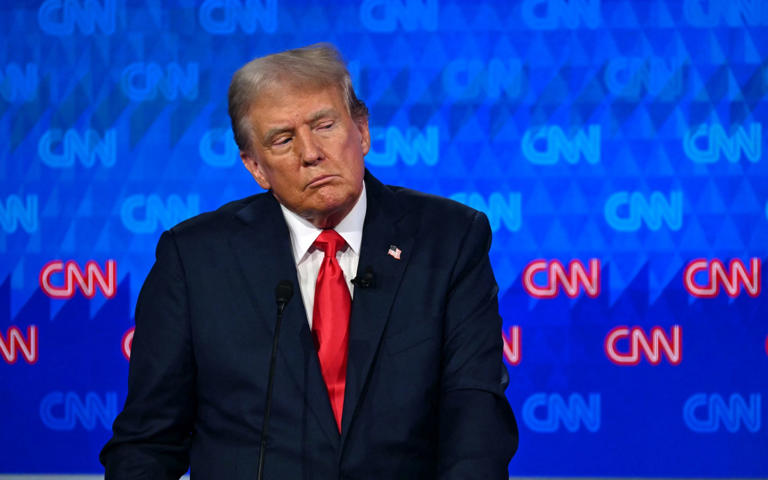Wisesoft Co’s Stock Surge:
Wisesoft Co, known as Chuan Da Zhe Sheng in Mandarin, saw a significant uptick in its stock price, rising approximately 10% on Friday. This surge came in the aftermath of the first presidential debate between Joe Biden and the Republican challenger, where Biden’s performance was perceived as lackluster. The company’s name phonetically resembles “Trump wins big” in Mandarin, which has historically led to speculative investments by Chinese investors during pivotal U.S. elections. Similar boosts were observed in 2016 when Donald Trump won against Hillary Clinton.
Impact of U.S. Presidential Elections on Chinese Stocks:
The trend of investing based on homophones of political figures’ names is not uncommon among Chinese investors. For instance, stocks resembling Barack Obama’s name surged significantly when he won the presidency in 2008. This speculative behavior underscores how local market sentiments and perceived political outcomes can influence stock movements in China, particularly as the November election approaches.
Trump Media & Technology Group’s Performance:
In contrast, Trump Media & Technology Group (TMTG), the parent company of Truth Social, has faced challenges in the Western market. Following its debut on the Nasdaq through a merger with a listed cash shell, TMTG’s shares have declined by approximately 45%. The company, envisioned as a free speech platform to rival Twitter, has struggled amidst Trump’s legal troubles and financial setbacks. Trump’s recent criminal conviction in New York and revelations of substantial financial losses have contributed to investor skepticism and diminished market confidence.
Financial Struggles and Ownership Dynamics:
Despite Trump’s ownership stake of nearly 60% in TMTG, strict listing agreements prevent him from selling any shares until six months post-debut. This restriction adds to the challenges facing TMTG as it navigates financial difficulties and attempts to establish itself as a viable competitor in the social media landscape, particularly in light of Trump’s limited activity on the platform he once championed.
In summary, while speculative investments based on linguistic associations continue to influence certain Chinese stocks in anticipation of U.S. election outcomes, Trump Media & Technology Group faces substantial hurdles in the Western market, reflecting broader investor concerns over its financial stability and operational viability.
